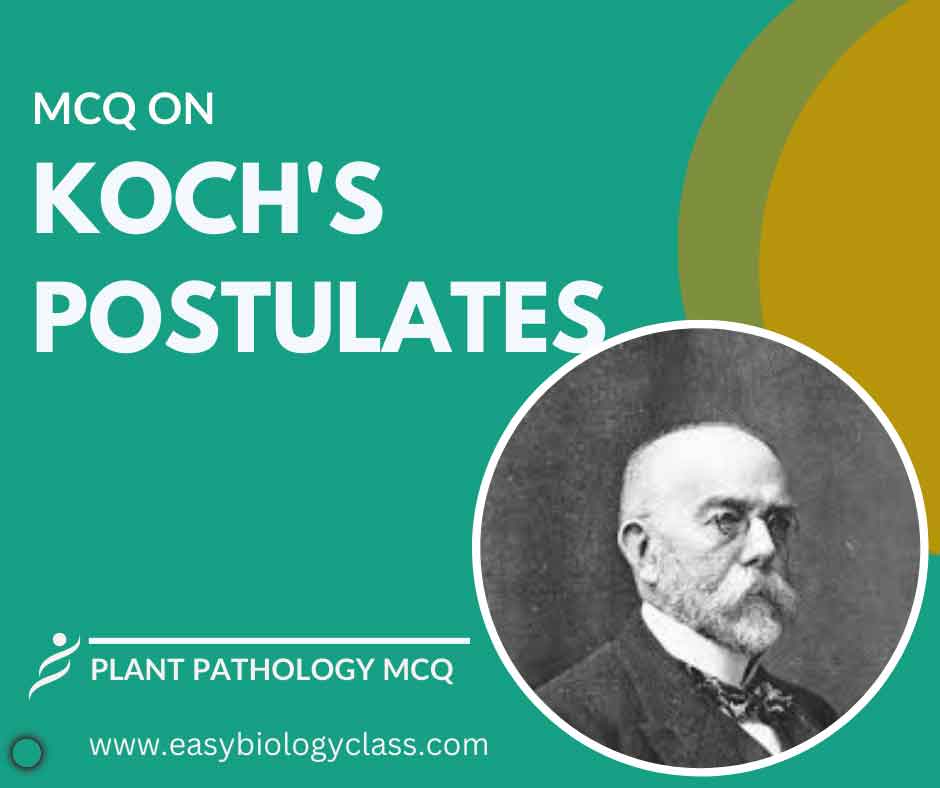Koch’s postulates are four criteria developed by Robert Koch to establish a causal relationship between a microorganism and a disease. They include isolating the microbe, infecting a healthy host, observing the same symptoms, and re-isolating the microbe for confirmation. With this MCQ on Koch Postulates you can understand What is Koch Postulates.
Microbiology Notes | Microbiology PPTs | Microbiology MCQs
<<< Back to Microbiology MCQ Page
You may also like... NOTES QUESTION BANK COMPETITIVE EXAMS. PPTs UNIVERSITY EXAMS DIFFERENCE BETWEEN.. MCQs PLUS ONE BIOLOGY NEWS & JOBS MOCK TESTS PLUS TWO BIOLOGY PRACTICAL


